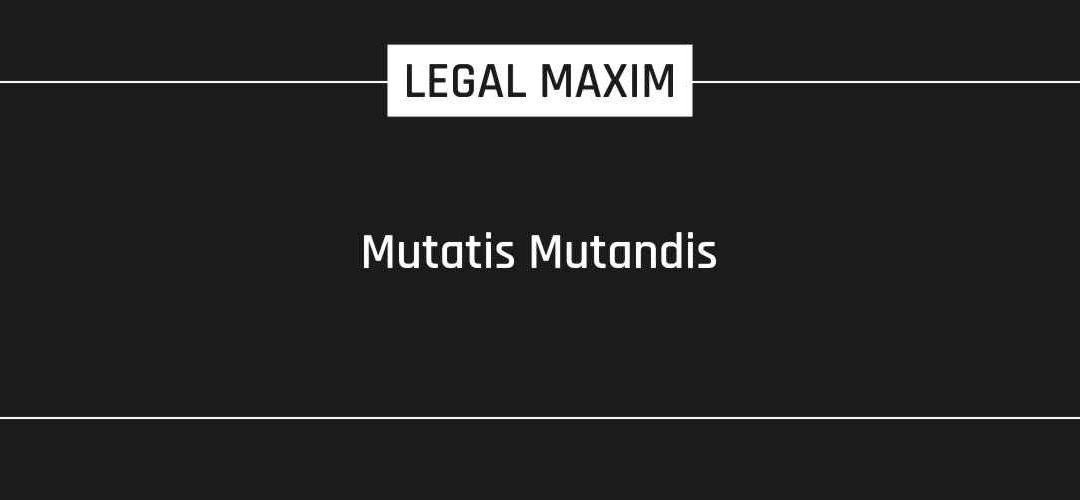Literal Meaning
With things changed that should be changed
Origin
Latin
Explanation
The maxim refers to the necessary changes having been made or with consideration of the respective differences. In simple terms, the maxim refers to having substituted new terms or relates to due alterations to be made in similar statements. The phrase refers to matters that are generally the same but can be altered according to need. Changes in similar statements will be regarding points in detail such as the name, title, and address of the parties.
Case Laws
In Corporation of Calcutta Vs Sirajuddin & Ors., the Calcutta High Court held that “When a law directs that a provision made for a certain type of case shall apply mutatis mutandis in another type of case, it means that it shall apply with such changes as may be necessary, but not that even if no change be necessary, some change shall nevertheless be made.”
In Vasudev Anant Kulkarni Vs. Executive Engineer, the Supreme Court of India held that “The works ‘mutatis mutandis’ mean with the necessary changes being made. In other words, some changes must be made for mutatis mutandis does not mean ‘with such changes’ if any, as may be necessary but ‘with the necessary changes being made’.
In Ashok Service Center & Ors. Vs State of Orissa, the meaning of the expression ‘mutatis mutandis’ was discussed and concluded that extension of an earlier Act mutatis mutandis to a later Act brings in the idea of adaptation, but so far only as it is necessary for the purpose, making a change without altering the essential nature of the thing changed, subject of course to express provisions made in the later Act.
